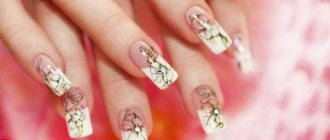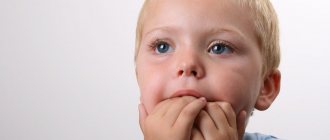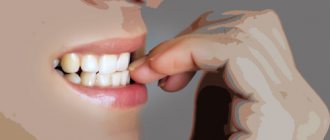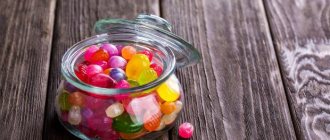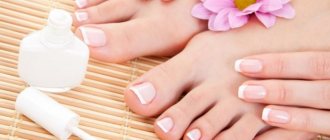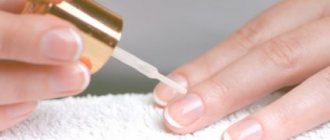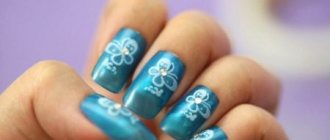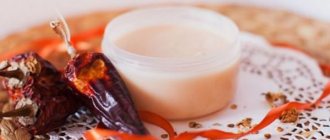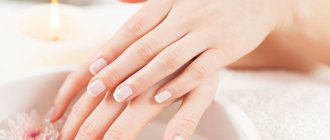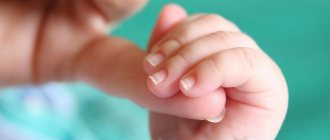Did you know that the habit of biting your nails has a medical name? This is onychophagy. It manifests itself as obsessive biting of the free edge of the plate, hangnails, and cuticle. It is more common in children or adolescents, but also occurs in 15% of adults. Why do people bite their fingernails? Doctors and psychologists are studying the issue, but there is no clear answer yet. The habit is believed to be associated with anxiety and mental disorders.
Causes
Attacks of onychophagia can occur episodically under the influence of provoking factors or be present constantly. Interestingly, the habit of biting nails takes hold very easily. After all, situations where hands are near the mouth occur often. When we prop our heads up while sitting at the table, we think, we yawn.
Some of the reasons why people bite their fingernails include:
- Stress. When a person is nervous, this is how he tries to distract himself. Doing your nails gives you temporary peace of mind, relaxation and even pleasure;
- Concentration of attention. In moments of mental stress and reflection, a person unconsciously begins to bite his nails in an attempt to find a solution;
- Boredom. Sometimes a bad habit is provoked by banal boredom, when, while looking for something to do, a person suddenly comes across his own fingers;
- Psychical deviations. The habit can be a manifestation of obsessive-compulsive, oppositional defiant, major depressive disorder, Tourette's syndrome;
- Hunger. When people start biting their nails when they are hungry, it acts as a distraction.
Experts agree that there is no one universal cause of onychophagia. Rather, a complex of provoking factors is triggered. Some believe that the obsessive desire to bite nails has the same roots as the habit of pulling out hair, biting lips, picking skin, and belongs to the category of neuroses.
And what does Freud have to do with it?
The creator of psychoanalysis, Sigmund Freud (1856-1939), was the first to study the habit of biting nails. He said that the basis of the psyche of any person is his sexuality. Therefore, the scientist identified a number of successive stages of child development:
- oral stage;
- anal stage;
- phallic stage;
- latent stage;
- genital stage.
During development, the baby shows increased attention to one of the parts of his body. In the very first stage of development, the child’s main sense organ is the mouth, and then the teeth. It is through the mouth that a newborn eats, learns about the world around him, and receives his first pleasant sensory impressions.
If at one stage of development the baby has experienced severe stress, then mental fixation at this stage may occur. At the oral stage, such fixation can be caused, for example, by too early weaning from the breast or pacifier, or a long absence of the child’s mother. Therefore, in moments of anxiety or worry, old mental mechanisms appear. A person has a need to occupy his mouth with something, because it was this action that once calmed him in infancy. This is where the habits of biting your nails, fidgeting with the tip of a pencil or ballpoint pen, biting your lips, etc. appear and develop. By the way, such people more often start smoking and calm their nerves with food or drink.
Freud's theory is, of course, good, but too one-sided. Therefore, in the next century it was subject to significant criticism and even partial revision.
The main problem with the Austrian psychoanalyst's explanation of the destructive habit of nail biting is the lack of a solution. After all, it is already a little late for an adult with an oral fixation of the psyche to make adjustments to breastfeeding.
Auto-aggression is the main reason for the development of onychophagia in adolescents
Today, the most common cause of the habit of biting nails is considered to be an auto-aggressive habit preserved from childhood. Auto-aggression is aggression that a person directs towards his own body. Onychophagia is one of the forms of manifestation of this type of aggression.
Auto-aggression has been widely studied by Soviet educational psychology. The works of the famous psychologist Arthur Aleksandrovich Rean indicate that auto-aggression is more characteristic of adolescents who live under conditions of increased stress in the family and school. It is difficult for such children to find a way out of this situation, so the teenager’s psyche directs all the anger towards his own body.
Obsessive-compulsive disorder and severe onychophagia
In adults, severe onychophagia is a symptom of obsessive-compulsive disorder. The most famous scientist who has studied this phenomenon is Russian Nobel laureate Ivan Petrovich Pavlov.
A person suffering from such a disorder systematically experiences obsessive anxiety states, which are collectively called “obsessions.” In these states, people resort to repetitive behaviors called compulsions. For example, they wash their hands endlessly, move their head a certain number of times, count to ten before saying or doing something.
It is necessary to understand that this condition is very far from the norm. It cannot be confused with a harmless form of onychophagia.
How to wean yourself from the habit of biting your fingernails?
It is not only possible, but also necessary to wean yourself from the bad habit of biting your nails. And it's not just about aesthetics. Our hands are constantly in contact with contaminated surfaces (handrails in public transport, money, work computer keyboards, elevator buttons, public restrooms, etc.), on which millions of bacteria and germs accumulate. They are just waiting to build themselves a comfortable home under your nails. This can lead to health problems such as:
- inflammation of the cuticle;
- pain conditions associated with damage to the soft tissues surrounding the nail;
- the entry of various infections and parasites into the body leads to infection of the body and problems with the digestive system.
There are a lot of effective and sometimes downright funny tips that should help solve this problem.
1. Representatives of the fair sex need to go for manicures more often. Ideally, once a week. Well-groomed nails covered with beautiful varnish will be a pity to chew!
2 Extended nails are an excellent way to combat a bad habit. Chewing them is very difficult and uncomfortable.
3. You can cut your nails short, then the onychophagus simply won’t have anything to chew on.
4. Use special bitter-tasting varnishes that are sold in pharmacies.
5. You can smear something bitter on your nails (for example, mustard), wear gloves, constantly chew gum or bite candy.
6. As soon as you notice that you are starting to get nervous and put your hands to your mouth, you should immediately switch your attention to something else: you can clean up, cook, walk the dog, watch a movie, etc.
7. You can wear an elastic band on your hand (the kind that is usually tied around wads of money). As soon as you want to bite your nails, you need to pull the elastic band back and quickly release it. The painful sensations obtained in this case, after a while, will dissuade the onychophagus from harming its nails.
8. You need to try to control yourself. If you can’t do this yourself, you can ask your family, friends, acquaintances to make comments or use more radical methods and hit the nail rodent on the hands.
But observations show that onychophages in this case begin to chew the skin around the nails, pluck out the hair on the head, or, even worse, switch to smoking. The psyche simply finds a replacement in this way. To calm the brain and remove excessive excitability, it is necessary to take antidepressants and anticonvulsants (anticonvulsants). This is a professional treatment for obsessive-compulsive disorder, so the selection of medications should be entrusted only to a highly qualified specialist.
Let's draw conclusions!
Anxiety is the main cause of onychophagia in adults. Anxiety has different components in its origin. In addition, the habit of biting nails can be a consequence of depression.
Therefore, it is better not to focus on eliminating symptoms, but to figure out what is the cause of your anxiety. You need to make an appointment with a psychiatrist or psychotherapist as soon as possible. A specialist will make the correct diagnosis and help you get rid of the destructive habit of biting your nails.
Why does a child bite his nails?
At 2, 3, 4 and 5 years old, 30% of children have the habit of biting their nails. One explanation for the reasons associates this with the extinction of the sucking reflex. Some babies find it difficult to cope with this period. Unconsciously trying to maintain the reflex, they begin to suck fingers or bite their nails. Especially in moments of stress or overexcitement.
Among adolescents, onychophagia occurs in 45% of boys and girls.
The habit helps children relieve stress, get distracted, or retreat into themselves during the following difficulties:
- uncertainty, low self-esteem, embarrassment;
- excessive demands on the child from parents, teachers or other adults;
- constant quarrels in the family, divorce, cases of domestic violence;
- negative assessment of the child’s behavior or appearance by friends or classmates;
- difficulties with the manifestation of negative emotions when children try to hide or suppress aggression within themselves;
- change of environment, moving, period of adaptation to kindergarten or school, death of a loved one;
- difficulties in communicating with peers, establishing friendships, isolation;
- the desire to be the best, to receive recognition and praise;
- excessive physical, emotional or mental stress.
With these problems, in addition to onychophagia, the child has moodiness, nervousness, sleep disturbances, and appetite. Apathy or aggressive behavior, sharp reactions to the actions of others are possible.
The reason that onychophagia is more common in children than in adults is that children are not aware of the norms of behavior and do not see anything terrible in it. For example, they pick their nose without hesitation in front of everyone. Whereas an adult is stopped by the fact of social condemnation. The same applies to the habit of biting nails in children.
Also, the reason why a child bites his fingernails may be in imitation of adults, older brothers or sisters. If a kid sees someone doing this, he will want to do it too, because the elders are an example and authority for him.
Many who suffer from onychophagia in childhood outgrow this bad habit as they grow older. But if you cannot overcome it, it persists for life.
How to stop a child from biting his nails: 7 tips
If stress is the trigger for this bad habit, you need to find and eliminate its cause. Then follow our advice.
- Start creating a healthy psychological atmosphere around your child. Her criteria: calm and trusting communication, a positive atmosphere in the family (no swearing between adults), interesting leisure time and no pressure for school performance.
- Buy a nice hair tie or elastic bracelet and teach your child to snap it on his hand every time he pulls his nails towards his mouth. This method will help to take control of the bad habit, and will also allow you to record how many times a day and in what situations the child felt the urge to bite his nails.
- Toddlers can be given a chewing toy, a carrot or a hard apple - any safe object that can be chewed instead of nails.
- At 2-3 years old, when the child is already able to make inferences, discuss his habit of biting his nails. Ask questions: “Why are you doing this?”, “What can I do to make you stop?” etc. Repeat them every time you see the child putting his fingers in his mouth. Most likely, the answers will be vague, because children do not fully understand the essence of this activity. But such conversations will help focus attention on the problem.
- Create a plan for goals and results. Record every day when your child was able to resist the urge to bite his nails. Constantly praise him for this, remind him how great he is and how proud you are of him. Encourage him to fight addictions and build self-confidence.
- The drastic method when all else fails is to create a physical barrier between the teeth and nails. For this, use thin gloves, bitter-tasting varnish, and adhesive tape. But first explain why you are doing this.
- Teenagers will have enough motivation: “Masha, as soon as you stop biting your nails, we will give you a beautiful manicure.”
Why do adults bite their nails?
According to statistics, onychophagia occurs to one degree or another in 15% of adults, and among women it is 3 times more common than among men.
According to a number of studies, it turned out that perfectionists are more prone to such a bad habit. If something does not go according to plan, then people striving for perfection get upset, nervous, and lose patience. And to cope with irritation, they bite their nails. And this applies not only to work, but also to personal, family life, relationships with friends.
Why do adults still bite their fingernails?
The reasons may be:
- Sudden nervous tension;
- Chronic stress;
- Feelings of fear and anxiety. In search of protection, adults return to childhood, remembering bad habits that helped cope with such conditions;
- Thinking about problems or important tasks. While people bite their nails, it is easier for them to concentrate and make decisions. Some people bite not their nails, but a pen cap or simply draw meaningless patterns on paper;
- Mental disorders that are accompanied by a desire to harm or injure oneself. Such people often chew their nails until they bleed, and may even eat the entire plate.
Why should you not bite your nails or bite off hangnails?
First of all, it's unhygienic. A person who bites his nails causes hostility and condemnation from others. Secondly, onychophagia is a habit that is dangerous to health.
Leads to the following complications:
- Deformation, thinning, delamination of the nail plate, inflammation, suppuration of the skin around the nail;
- Entry into the oral cavity of pathogenic pathogens that are located in the area under the nails and on the fingertips. As a result, a person becomes infected with gastrointestinal infections, suffers from indigestion or poisoning with a high fever;
- Fungus (onychomycosis). Injury to the nail area by bites and a humid environment create favorable conditions for the penetration and proliferation of fungus, which leads to deterioration of the condition of the nails and even their loss;
- Dental problems. The habit causes inflammation of the gums, damage to teeth (chips, displacement, destruction), dysfunction of the temporomandibular joint;
- Ingrown nail. With constant gnawing, the direction of growth of the plate changes, which leads to its ingrowth into the lateral nail folds.
Why else is it harmful and should not bite your nails? Their main function is to protect the end phalanges of the fingers from mechanical damage. If the integrity of the plate is violated, the nail bed will become vulnerable and easily injured.
Danger of disorder
First of all, the habit of biting nails is a sign of excessive emotional tension and stress, the fact that a person cannot deal with the situation in which he finds himself. This means that a person needs to be helped to change something in his life that causes such a psychological reaction. If the condition is ignored, especially if a child suffers from it, it can intensify and take root deeper into his psyche. In addition, onychophagia can lead to infectious and bacterial infections, as well as the development of parasites, because a huge number of different microorganisms accumulate under the nail plate, which enter the gastrointestinal tract through the mouth. Nail biting leads to mechanical damage to the skin of the fingers and deformation of the nails, which sometimes causes the development of inflammatory processes.
